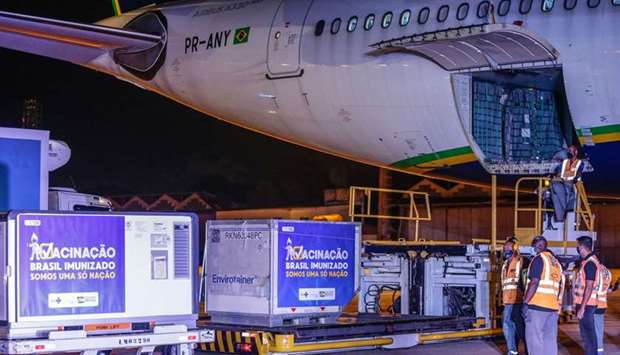Aviation Page - Beyond the Tarmac
Pandemic-induced lockdowns have become quite common in many parts of the world since the outbreak of Covid-19 in early 2020.
Obviously, the pandemic has impacted almost every aspect of human life, causing global economies to stall, changing the way we work and interact with one another, and stretching our healthcare systems to the limit. Governments around the world have been forced to implement harsh restrictions on human activity to curb the spread of the virus.
Unfortunately, we still have to keep hearing news about new lockdowns and strict requirements for travelling due to the emergence of new variants of the Covid-19 virus, which has prompted many governments to reverse efforts to ease travel restrictions.
Covid-19 vaccination is now offering a way to transition out of this phase of the pandemic. Without them, many scientists believe that natural herd immunity would not have been sufficient to restore society to its normal status quo and that it would have resulted in extreme fatality. This is something that has been echoed by many health experts including those at WHO.
The biggest vaccination campaign in history is underway around the world. More than 574mn doses have been administered across 141 countries, according to data collected by Bloomberg. The latest rate was roughly 14.8mn doses a day.
While the best vaccines are thought to be 95% effective, it takes a co-ordinated campaign to stop a pandemic. Anthony Fauci, the top American infectious-disease official has said that vaccinating 70% to 85% of the US population would enable a return to normalcy.
On a global scale, that’s a daunting level of vaccination, Bloomberg says. At the current pace of 14.8mn a day, it would take years to achieve a significant level of global immunity!
The good news, however, is that the rate is steadily increasing, and new vaccines by more manufacturers are coming to market.
But reaching the vaccines to all corners of the globe, particularly developing and financially challenged countries, within a specific time is undoubtedly a herculean task.
The potential size of the delivery is enormous, points out IATA, the global body of airlines. Just providing a single dose to 7.8bn people would fill 8,000 747 (jumbo) cargo aircraft!
Land transport will help, especially in developed economies with local manufacturing capacity. But vaccines cannot be delivered globally without the significant use of air cargo.
Air cargo, therefore, plays a key role in the distribution of vaccines in normal times through well-established global time – and temperature-sensitive distribution systems.
This capability will be crucial to the quick and efficient transport and distribution of Covid-19 vaccines and it will not happen without careful planning, led by governments and supported by industry stakeholders.
In this context, it is worth noting that Qatar Airways Cargo recently surpassed a milestone with 10mn Covid-19 vaccines transported, including vaccines for the United Nations International Children’s Emergency Fund (Unicef) as part of a five-year memorandum of understanding to support Unicef’s Humanitarian Airfreight Initiative.
Industry experts say vaccines need to be handled and transported in line with international regulatory requirements, at controlled temperatures and without delay to ensure the quality of the product.
While there are still many unknowns (number of doses, temperature sensitivities, manufacturing locations, etc), it is clear that the scale of activity will continue to be vast, that more cold chain facilities will be required and that delivery to every corner of the planet will be needed, experts say.
Facilities required for this distribution include availability of temperature-controlled facilities and equipment – maximising the use or re-purposing of existing infrastructure and minimising temporary builds, availability of staff trained to handle time – and temperature-sensitive vaccines and robust monitoring capabilities to ensure the integrity of the vaccines is maintained.
Since the crisis began, air cargo has been a vital partner in delivering much-needed medicines, medical equipment (including spare parts/repair components), and in keeping global supply chains functioning for the most time-sensitive materials.
This has been done through dedicated cargo freighter operations, utilisation of cargo capacity in passenger aircraft and with relief flights to affected areas.
Air cargo is also instrumental in transporting food and other products purchased online in support of quarantine and social distancing policies implemented by states.
The dramatic travel restrictions and collapse of passenger demand have severely limited cargo capacity. That’s why IATA has repeated calls urging governments to take immediate measures to ensure that air cargo will be available to support the global fight against Covid-19.
“Air cargo carriers are working closely with governments and health organisations around the world to safeguard public health while also keeping the global economy moving. Today, as we fight a global health war against Covid-19, governments must take urgent action to facilitate air cargo. Keeping cargo flowing will save lives,” noted Alexandre de Juniac, IATA director general.
*Pratap John is Business Editor at Gulf Times. Twitter handle: @PratapJohn


